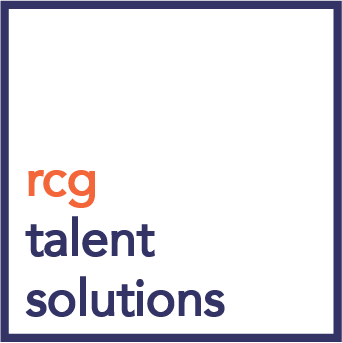September 20, 2023 • Written By Kat Ling, CEO, Moonshot edVentures
Part III: Moonshot edVentures: The power of a fractional workforce
TL;DR: Moonshot edVentures is diversifying education in Denver. In just 6 years, it has supported 100 educators and launched 40 new educational programs to meet the needs of students of color. They’ve done it using a small core team and a fractional workforce of local and national education leaders and skilled professionals. You can donate here to support their 7th cohort of Moonshot fellows.
Before joining Moonshot, I worked in a large educational non-profit supporting new educators and aspiring school leaders. A lot of the leaders of color I worked with were experiencing burnout as they moved into, or tried to move into, leadership roles in their school systems. The fact was that the educational environments we’d placed them in, and that desperately needed them, were not designed for them to succeed.
So when RCG suggested I apply for the Chief of Staff role at Moonshot edVentures, I jumped at the opportunity. At the time, Moonshot was a small start-up nonprofit focused on supporting leaders of color in metro Denver to design innovative learning environments.
About 75% of the kids in Denver Public Schools (DPS) are students of color. Almost the same percentage of teachers are white. We know that having leaders and educators in schools who share their students’ identities and experiences improves outcomes, both academically and social-emotionally. While DPS is making moves to diversify leadership, a systemic problem this historical and significant is not going to be solved by one district or organization.
That’s where Moonshot comes in. Through our Fellowship program, educational leaders become a part of a supportive, diverse community, experience leadership development, learn how to build liberatory learning models, and access resources and connections to launch new organizations. Alumni have access to micro-grants and an expert bench of consultants, and full-time residencies. In just 6 years, we’ve supported 100 leaders, who predominantly identify as BIPOC, women, trans, or non-binary. They have launched 40 new educational programs and schools in the metro Denver area. As a result, over 5,000 kids each year experience culturally-relevant and identity-affirming learning environments and diverse leadership in and out of school.
From the beginning, Moonshot has used a fractional workforce to bring in skilled experts from across the sector, while running on a start-up budget. Our flagship school incubator programs were co-designed and run by fractional workers–former school leaders who came on as consultants. These professionals bring an incredible amount of experience and knowledge in leadership development and program design. One of them had founded two schools. They know how to pilot programs in partnership with students and families and they understand the importance of building local and national networks.
We also use fractional workers for operational needs and to fill capacity gaps in fundraising, communication, and website management. As I see it, we wouldn’t have been able to afford to build such a highly skilled team without a fractional workforce. And, by staying lean on operations, we’re able to invest in permanent program roles when we can.
When we do hire full time staff, we’ve turned to RCG to help run our search process. Over the years, we’ve used their Signature Search service to fill finance, operations, and program roles and we’ve leveraged their Embedded Search service when we couldn’t afford to turn over the entire search process to RCG. They figured out a way to support us within our budget. It felt like a true partnership.
RCG’s partnership is important to me because the hiring process–whether hiring for full time or part time roles–signals to candidates who Moonshot is an organization. I’ve really appreciated that RCG treats candidates fairly, from paying stipends for performance tasks to offering mutual NDAs that protect the intellectual property of our organization as well as the job candidates.
Lessons learned
I moved into the CEO role in 2021 and have learned a lot about what it takes to make a fractional workforce part of our growing organization. Here are some things I consider when filling and managing fractional roles:
Make sure you know what you want: If I don’t yet have the vision–either for the role itself or the outcome I want to achieve from it–then it’s not the right time to bring someone in to do fractional work. Give yourself time to think about what you want, and surround yourself with mentors and advisors who bring different perspectives and push you to figure out what you’re looking for.
Cast a wide net: Post jobs or RFPs to a wide audience, interview everyone who is qualified, and kindly and respectfully communicate with everyone who is interested. Think expansively, beyond your own networks, and look for individuals who compliment each other’s skills.
Address problems early and collaboratively: You're bound to encounter bumps in the road when you have a small team of full-time staff working with a large group of part-time contractors. When something isn't working, get together and address it, fast. If you know it's not working well, they probably know, too, and there's a collaborative way to resolve that.
I keep these considerations in mind because they strengthen our community. Ultimately the power of our organization comes not from any one individual, but from our community of leaders and ventures who support one another, form deep, trusting relationships, and build off each other’s ideas and solutions to create a strong, sustainable ecosystem.
Help us support our next cohort of education changemakers
We’ve launched a giving campaign to support our 7th cohort of fellows. Every dollar donated will enable us to empower BIPOC and historically marginalized leaders to design and launch new education solutions tailored to the needs of students most on the margins.
Learn more about the Funding Our Future giving campaign and make a donation here: https://www.moonshotedventures.org/fundingourfuture
Ghostwritten by Elizabeth Christopher, a freelance writer based in Massachusetts, who works for RCG in a fractional capacity.


